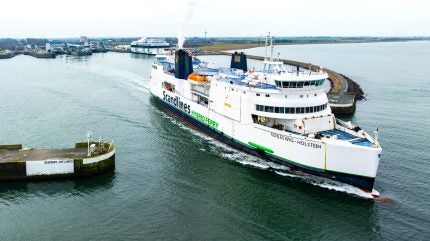
Ferry operator Scandlines has chosen maritime technology provider Wärtsilä to supply the electric systems for its new plug-in hybrid ferry conversion project.
The Finnish company will supply and oversee the installation of a range of solutions for the project, including the hybrid converters, the energy storage system, and the energy management system.
The contract covers the conversion of two ferries for Scandlines, the Deutschland and the Schleswig-Holstein, that will be used on its Puttgarden, Germany to Rødby, Denmark route as part of the operator’s net zero ambitions.
Roger Holm, president of Wärtsilä Marine, said: “Ship electrification is one of the solutions for marine decarbonisation and as the world’s biggest conversion project of its kind, we can help Scandlines move closer to meeting their goal of making the route emission-free by 2030.”
Wärtsilä’s equipment is scheduled for delivery in mid-2025 and will also include switchgears, transformers, an onboard port charger, and replacement components for the switchboard.
Once the conversions are complete, the ferries will be able to draw electricity from a shore-charged energy storage system for 80% of the power needed for the 21.4km crossing.

US Tariffs are shifting - will you react or anticipate?
Don’t let policy changes catch you off guard. Stay proactive with real-time data and expert analysis.
By GlobalDataThe project continues Scandlines investment in low to zero emission ferry conversions and newbuilds, following other projects such as the construction of the world’s largest all-electric double-ended ferry.
The company’s push to achieve net zero on the Puttgarden to Rødby route is part of its wider sustainability campaign which aims to see net zero across all the company’s operations by 2040.


